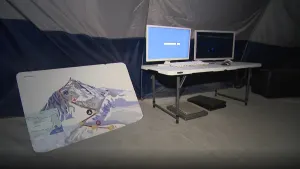More Stories
A national carbon dioxide shortage is bubbling up to create problems for restaurants, chemistry labs and local breweries.
The beer scientists at Aspetuck Brew Lab say carbon dioxide is an important part of every step in the process, from pumping to pouring.
"We're using CO2 to push beer through hoses when we're transferring, we're using it to carbonate beer,” said founder Peter Cowles. "And we're always using it to serve beer, to push it through our draft lines."
Cowles says he used to get carbon dioxide deliveries every four weeks. More recently, it's been every five, then six and sometimes every seven weeks.
"It's like looking at your car when you're on a long drive and that next gas station is 70 miles away and you're not going to make it. So the little red needle is moving closer and closer to zero,” he said.
Cowles says his gas supplier is driving further and further to fill his tank.
"Literally hundreds of miles to go fill his truck up, and when he gets to the depot to meet the train cars coming down from Canada, he's not even sure if there's going to be CO2 there to fill his truck,” said Cowles.
The contamination of a key Gulf Coast supplier is adding to fuel costs, trucker shortages and what Cowles calls normal supply and demand.
"Seven years ago when we started, we were the 29th brewery in Connecticut. Now there are nearly 130, and many more in planning. So all those breweries are going to be CO2 customers,” he said.
The carbon dioxide crisis is coming at the tail end of an aluminum can shortage. Brewers say it's hard to find part of their business that supply chain woes haven't made more expensive.
"Thirty to 40 to 50% price increases, just in the last eight to 12 months, for many of the ingredients that are going into our product,” Cowles said.
Carbon dioxide is not expected to become more readily available until the fall, at least. Local brewers are expecting their supply issues to get worse before they get better.
The shortage is also being felt in the hospitality industry where carbon dioxide adds fizz to soft drinks and dry ice keeps food cold for shipping.
More from News 12
1:31

What's Cooking: Uncle Giuseppe's Marketplace's prime rib roast
1:30

Looking for a road trip? Check out Big Snow at American Dream in East Rutherford
1:27

What's Cooking: Uncle Giuseppe's quiche lorraine
2:34

Guide: Safety tips to help prevent home burglaries
2:19

Guide: Safety measures to help prevent fires and how to escape one
2:36
